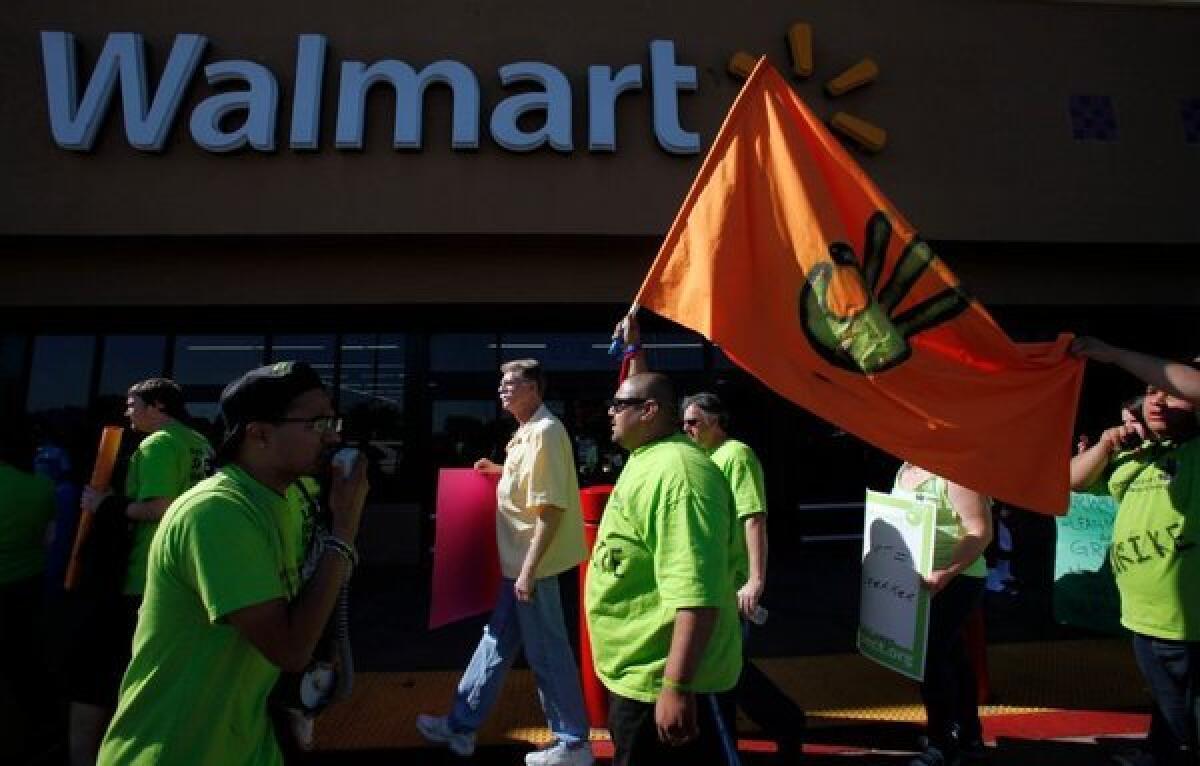The retail industry’s war on Thanksgiving

- Share via
Like the Cold War arms race, retailers’ assault on Thanksgiving appears to have reached the point of unremitting insanity. Next week Target, Kohl’s, K-Mart, Sears and many other retailers will be opening their stores for some Thanksgiving hours starting in the evening or earlier.
They join Wal-Mart, which has always been open during Thanksgiving but which this year will be pumping up its holiday discounts to lure determined bargain-hunters into the stores. Plan on consuming a heaping helping of reports and videos of Thanksgiving Day mayhem, some of it possibly lethal, with your turkey leftovers next Friday.
The Thanksgiving Day openings are merely a line extension of Black Friday sales, which had been steadily encroaching into the holiday in recent years. In the quaint old days, department stores and big-box retailers simply added loss leaders to their inventories during the normal Friday hours. Then they started moving those hours up -- to 5 a.m. Friday and then midnight Thursday night. I blame Best Buy, which was the first chain I was aware of pushing these wee-hour door-buster deals, but the phenomenon may well have been pioneered by others.
The door-buster deals always have the aroma about them of traps for the unwary. True values on desirable products are few and far between. For the most part they seem to be discounts on off-brand merchandise -- not necessarily anything to sneeze at if you’re looking for a flat-screen TV on a budget, but not quite the same thing as getting in on Google stock at the ground floor.
There’s also reason to wonder whether the marginal hour openings really are profitable for the stores, or whether those that open early are doing so because their rivals are -- that is, if all electronics or clothes retailers declared multilateral cease-fires, would their total holiday sales really suffer?
Thanksgiving Day openings are even more questionable. The National Retail Federation’s survey of holiday shoppers last year showed the most resistance to shopping on Thanksgiving Thursday. Less than 15% of adults said they’d be shopping Thursday, compared with nearly 38% steeling themselves to brave the crowds Friday. Still, that meant 35.4 million estimated Thanksgiving Day shoppers, so maybe the retailers know something.
It’s now conceivable, however, that we’ve reached peak Thanksgiving Day retailing. The sudden proliferation of holiday openings has helped focus attention on the nickel-and-diming of low-wage retail clerks by hugely profitable retail chains. Wal-Mart, naturally enough, has received a good share of the brickbats, possibly because of the sheer fatuousness of one executive’s claim that “Wal-Mart associates are really excited to work that day.”
He seemed to be suggesting that the extra day’s pay and turkey dinner they got for the privilege more than compensated for missing a traditional family gathering, but it’s fair to assume that average Wal-Mart low-wage employees aren’t that excited by the perks, any more than they’re fooled by being called “associates” instead of “employees.”
Any decent union contract would award employees double time and a half, or better, to be called in to work on a national holiday. That alone would suppress retail managements’ invasion of the holiday with relentless hawking of merchandise. But union representation of retail clerks is almost invisible, which is why the clerks can’t make a living wage and get pressured into leaving their families on what used to be one of the few days of respite from work on the calendar. This year you can count on one hand the major retailers that are taking a stand against hours, including Nordstrom and Home Depot. But how long will they hold out?
More to Read
Inside the business of entertainment
The Wide Shot brings you news, analysis and insights on everything from streaming wars to production — and what it all means for the future.
You may occasionally receive promotional content from the Los Angeles Times.











